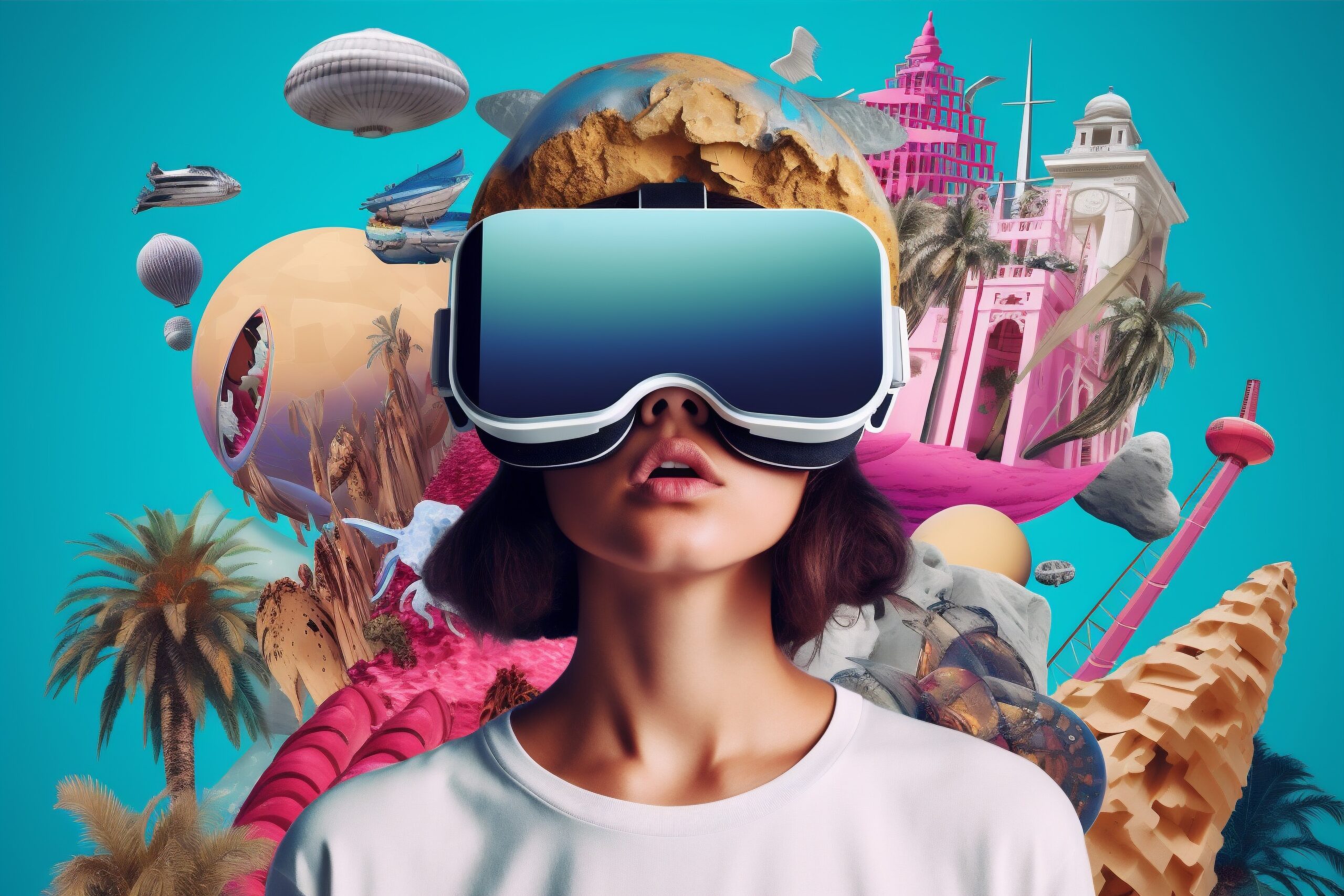In the canvas of the digital revolution, where the brushstrokes of technology paint the narrative of our existence, we find a convergence of two realms of innovation — Experiential Marketing and Artificial Intelligence (AI). These two, acting in synergy, weave a dynamic tale, echoing the advent of an epoch where human creativity and ingenuity dances harmoniously with machine intelligence.
Experiential marketing, with its roots deeply ingrained in the soil of human emotions, engagement, and connections, is breaking free from the traditional constraints of marketing. AI has emerged as a formidable collaborator in our quest for deeper understanding, greater efficiency, and enhanced creativity.
In 2023, the AI market value stood at $150.2 billion and is anticipated to increase up to $1.3 trillion by 2030. Within the forecasted growth trajectory, AI in the Marketing Market is also anticipated to reach over $77 billion by 2030. Over 61% of small business marketers are already leveraging AI in their strategies, with 72% of business executives already using (or planning to use) AI for content marketing, and best-performing companies like Meta, Microsoft, and Google, twice as likely to adopt AI in marketing, operations, and beyond.
The AI experiential marketing matrix envisions a world where consumers and audiences do not passively receive information, but actively participate in the cultivation of storytelling and brand narrative(s) — inspiring a newly immersive experience that transcends the transaction of buying and selling.
Bespoke is the only size
Infusing the experiential framework with the transformative power of AI, has already begun to redefine the boundaries of our capabilities. AI serves as a catalyst to propel the experiential industry into a realm of possibilities where engaging storytelling becomes not just an art, but a science.
AI has the power to analyze, predict, and respond to human behavior and emotions with unparalleled efficiency and more certain accuracy. It feeds on vast data sets and sprawling oceans of information that enable it to discern patterns, infer preferences, and predict actions and outcomes. In the realm of experiential marketing, this means AI has the potential to create highly personalized experiences.
In a world where AI-powered solutions offer real-time data analysis of an individual’s interaction with an experiential marketing event or campaign. The AI system could adapt the experience to resonate with the user’s emotional state, preferences, and past interactions, thereby cultivating a story that feels incredibly personal and engaging to that individual.
Moreover, AI will inspire more interactive storytelling. Imagine AI chatbots participating in narrative-building, providing instant responses to consumers’ queries, and becoming a character in the brand’s story itself. This not only blurs the line between reality and the digital realm, but also makes the experience more dynamic and interactive, thereby fostering new levels of engagement and a profound connection with audiences.
World Wide Web3
Today, our strategies are being enhanced by generative AI-driven tools that add new dimensions and create radically immersive brand experiences across diverse channels of communication. From live events to activations, AI serves as an ally, rapidly generating ideas, enhancing executions of creative campaigns, and automating manual tasks that traditionally slow down the execution phase.
The transformative power of AI is also being felt in the burgeoning realms of Blockchain, Metaverse, NFT, and Web3 brand experiences. In the world of Web3, decentralization becomes a pivotal concept, aligning with the data requirements of AI and Natural Language Processing modules. This sets up the stage for how decentralized ecosystems can work in tandem with AI to facilitate radical transparency, knowledge, and consumer trust.
Brands are now harnessing AI algorithms and predictive analytics to synthesize audience data and insights, thereby crafting personalized Web3 campaigns. These AI-backed campaigns offer exclusive utilities, NFTs, and content, that resonate authentically with a brand’s audience, driving maximum impact and engagement. Additionally, training AI learning models with a mix of user-generated and branded content helps organizations deliver a spectrum of fresh content, keeping users engaged and connected.
Powering machine, disempowering information
We stand at the threshold of a digital renaissance — a period of unprecedented discovery, creation, and storytelling, powered by the confluence of experiential marketing and artificial intelligence. However, AI is not without its challenges. The discourse around ethical and responsible AI use should be as central as its revolutionary aspects, to ensure the positive impact of AI on society and global industries and enterprises.
Misinformation propagated by underdeveloped machine learning models can distort facts and undermine the authenticity of a campaign. Fact-checking and verification processes should therefore be integral to any strategy and execution.
Additionally, insights derived from globally targeted AI technologies could potentially skew a brand experience in an unintended direction. To address this, we should not disregard the audience data captured through previous events. Rather than relying completely on current data sets, AI should be used to enhance cumulative information, helping concoct a curated, solution-oriented strategy and the ultimate brand experience.
Charging into the future
Our journey into this brave new world of AI-powered experiential marketing requires a delicate balance, calling for the harmonious, supervised, co-existence of human creativity and machine intelligence. It necessitates the celebration of our human capacity for empathy, compassion, and intuitive understanding, along with the embracing of AI’s computational prowess, predictive capabilities, and efficiency.
In this grand tapestry of evolution, we see the potential of AI to power the experiential marketing industry, illuminating the path to more engaging storytelling. And in this interplay of technology and human endeavor, we find a reflection of our inherent yearning — the innate yearning to connect, to communicate, to engage, and to understand.
As we venture into this uncharted territory, we carry with us the promise of a future where storytelling and experiential marketing transcends the boundaries of traditional commerce, becoming an art form that blends science and creativity, architecting narratives that engage, inspire, and transform communities around the world.
